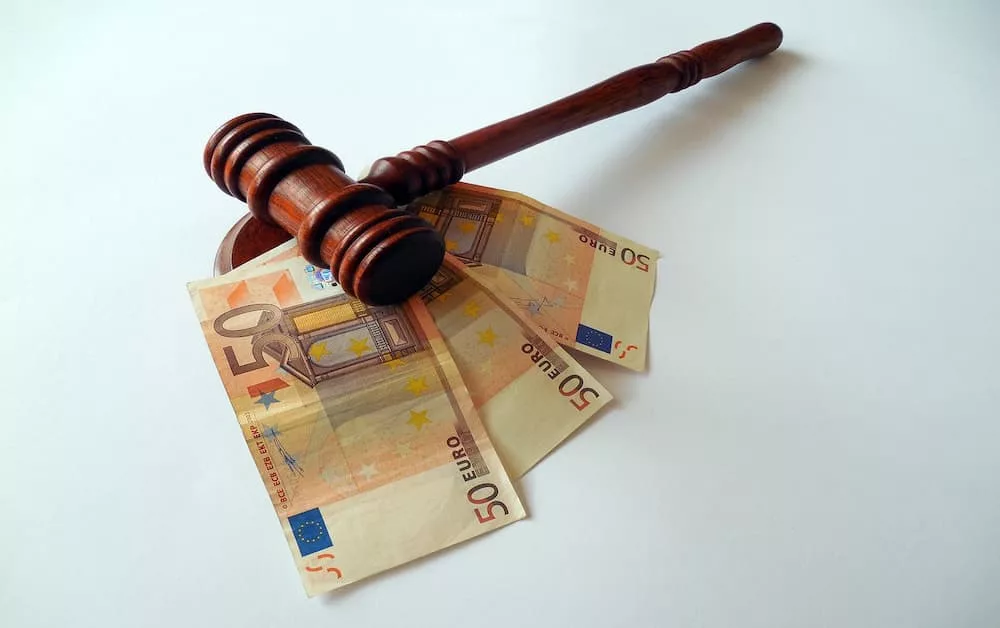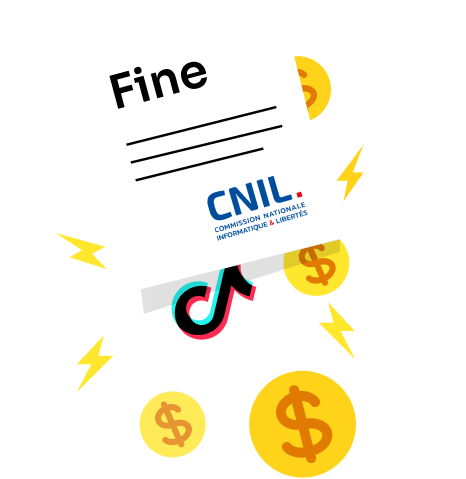Introduction
TikTok Technology Limited, the ByteDance-owned company behind the popular short video platform, has been fined 5 million euros by the French Data Protection Authority, known as the CNIL. The fine was imposed on TikTok for refusing to allow users to reject non-essential cookies, violating the French Data Protection Act. The CNIL found that TikTok’s past practices discouraged users from refusing online trackers and that the company did not provide sufficiently informed consent mechanisms for data transfers.
Background of the case
TikTok Technology Limited’s past cookie practices have been controversial for the past few years. The company has been criticized for its handling of user data, particularly regarding the collection and use of non-essential cookies. In response to these concerns, TikTok introduced a refusal mechanism for non-essential cookies, which was supposed to allow users to reject online tracking.
However, the CNIL found that TikTok’s refusal mechanism was not effective and that the company’s past practices discouraged users from utilizing it. The CNIL also discovered shortcomings linked to TikTok’s data transfer and handling practices, which violated European Union rules on data protection.
CNIL’s findings and draft sanctions
As a result of its investigation, the CNIL carried out two draft sanctions aimed at TikTok. The first sanction was a warning that TikTok must provide additional information to users about the data stored on their mobile application. The second sanction was a fine of 5 million euros for TikTok’s past practices regarding cookies.
TikTok Technology Limited has stated that it is reviewing the CNIL’s findings and draft sanctions and that user privacy remains a top priority for the company. A spokesperson added that the company is committed to providing additional information to users about certain cookies and that it is working to improve its data protection practices.

What are the shortcomings linked to TikTok’s data protection practices?
The CNIL carried out an investigation into TikTok’s data protection practices and found several shortcomings. These shortcomings included the fact that TikTok did not provide users with sufficient information about the data stored and used by the mobile application. In addition, the CNIL found that TikTok did not obtain prior consent from users for the collection and use of certain cookies.
TikTok’s data protection practices have been criticized by European regulators for some time now. In the first half of 2020, the Irish Data Protection Authority (DPA) began investigating TikTok’s data protection practices. The Irish DPA found that TikTok did not provide additional information to users about how their data was being used. This led to concerns about user privacy and the potential misuse of personal data.
What is the response from TikTok?
TikTok has addressed CNIL’s conclusions and proposed penalties by emphasizing that they still prioritize protecting user privacy. A spokesperson for the ByteDance-owned company said that they are committed to complying with all applicable laws and regulations regarding data protection. The spokesperson added that TikTok had made changes to their platform to address the concerns raised by the CNIL.
The importance of user privacy in the age of online tracking
In the age of online tracking, user privacy has become a top priority for many people. With the increasing use of smartphones and the internet, it has become easier for companies to collect and store data about their users. This has led to concerns about how this data is being used and who has access to it. The French Data Protection Act aims to protect users’ privacy and ensure that companies are transparent about how they collect and use data.
TikTok’s past practices regarding the refusal of non-essential cookies have been found to relate to their handling of user data transfers. The CNIL’s draft sanctions aimed at TikTok Technology Limited highlight the importance of user privacy and the need for companies to be sufficiently informed about European Union rules. The French Data Protection Authority findings show that TikTok’s refusal mechanism discouraged users from exercising their right to refuse online trackers, thereby violating their privacy rights.
Online tracking has become a common practice among companies, especially those operating in the digital space. Many companies track their users’ online activities in order to provide targeted advertising and improve their services. However, this can also lead to the misuse of personal data, such as selling it to third-party companies or using it for malicious purposes.

European Union rules on data protection and online tracking
The European Union has established comprehensive rules and regulations regarding data protection and online tracking. The General Data Protection Regulation (GDPR) sets out guidelines for businesses and organizations that handle the personal data of EU citizens, including the collection, storage, and processing of data. In addition, the ePrivacy Directive provides guidance on how online tracking, including the use of cookies, should be handled.
TikTok’s practices in handling user data violated several of these rules. Specifically, the company did not provide sufficient information to users about the types of cookies it was using and the purposes for which they were being used. This lack of transparency made it difficult for users to make informed decisions about whether to accept or reject non-essential cookies.
Furthermore, TikTok did not offer an effective refusal mechanism for non-essential cookies. This meant that users who wished to refuse online trackers were discouraged from doing so, as the process was not clear or straightforward.
The French Data Protection Authority’s (CNIL) findings relate to past practices of TikTok Technology Limited, which operates the short video platform. Specifically, the CNIL found that TikTok’s handling of data transfers did not comply with European Union rules. The company was not sufficiently informed about the data transfers that were taking place and did not obtain the prior consent of users for these transfers.
The CNIL’s draft sanctions addressed these shortcomings and ensured TikTok complied with French and European Union data protection rules. The fine of 5 million euros was intended to serve as a warning to other social media companies that user privacy remains a top priority for European regulators.
Key GDPR Articles violated by TikTok
TikTok violated several articles of the General Data Protection Regulation (GDPR). Specifically, the CNIL found that TikTok violated Article 5(3) of the GDPR, which requires that personal data be processed lawfully, fairly, and transparently. The CNIL also found that TikTok violated Article 7 of the GDPR, requiring data controllers to obtain individuals’ prior consent before processing their personal data.
In addition, TikTok was found to have violated Article 12 of the GDPR, which requires data controllers to provide individuals with clear and concise information about how their personal data is being processed, including the purposes of the processing, the categories of data being processed, and the retention periods for the data. TikTok was also found to have violated Article 13 of the GDPR, which requires data controllers to inform individuals about their rights regarding their personal data and how they can exercise those rights.
Finally, the CNIL found that TikTok violated Article 32 of the GDPR, which requires data controllers to implement appropriate technical and organizational measures to ensure the security of personal data. The CNIL found that TikTok’s security measures were inadequate, as the company did not sufficiently protect the personal data of its users and did not take adequate steps to prevent unauthorized access to that data.
Conclusion
In conclusion, the CNIL’s decision to fine TikTok 5 million euros highlights the importance of transparency and user consent in handling personal data. Online tracking is a pervasive issue, and companies like TikTok must take steps to ensure that they are complying with European Union rules regarding data protection.
Users must be fully informed about the data being collected and how it is being used, and they must be able to reject non-essential cookies and trackers. It is crucial for businesses and organizations to prioritize user privacy and take proactive measures to protect user data.




